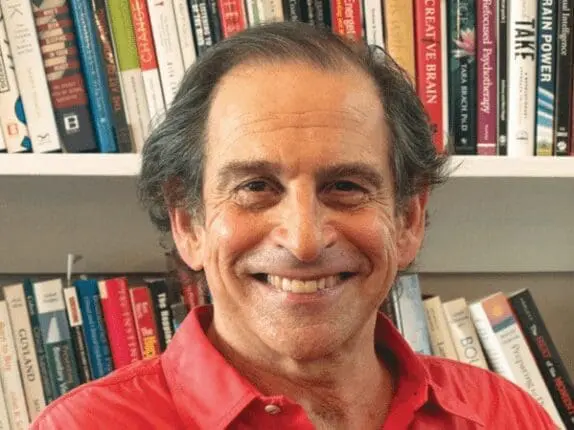Once upon a time, clinicians relied less on their own therapeutic instincts than on the received wisdom of a handful of revered psychotherapy gurus. In the 1970s and ’80s, the likes of Salvador Minuchin, Virginia Satir, Carl Whitaker, and Murray Bowen worked their magic in workshops and videos that transfixed tens of thousands of clinicians. Charismatic, iconoclastic, and bristling with self-assurance, these pioneering innovators were our idols and role models. If we were lucky and daring enough, we imagined that maybe we could become like them. Or at least more like them. At a minimum, we could become worthy carriers of the torch.
I was as starstruck as anyone. Way back in 1978, when we launched a precursor to the Networker called The Family Schtick, I imagined it as mainly a showcase for the work of these super-sages. This barebones, graphically primitive publication gave me the opportunity to interview them and delve into what seemed to me and many other therapists starting out in the field a revolutionary new perspective on understanding human behavior.
But overtime, not content to sit at the feet of masters, the field became bolder and confident enough to shed the hero-worship thing and, well, grow up. Clinicians began to incorporate other intriguing new models, follow research on what actually worked in the treatment room, and especially pay attention to and trust their own on-the-ground experience.
This issue of the magazine hones in on this third element of the therapist’s craft—curiosity about, and willingness to act on, our own deepest instincts, personal gifts, and creativity. In this issue, clinicians at different stages of their career trace the way their practices have changed—and how they have changed—once they began to closely attend to their immediate felt experience of their work.
For some of these practitioners, the shifts have been dramatic; for others, subtle. Nearly everyone has gained professional expertise along the way, and a healthy measure of confidence, too. But their most vital work has been a search for meaning and personal consonance. Each tries to answer the same question: how do we do therapy that’s at one with who we are, and enables us to give clients the very best we have to offer?
Few clinicians are merely followers, unswerving disciples of the wizards of psychotherapy and the therapeutic schools they created. Certainly, we continue to absorb the work of both past masters as well as the creative innovators of today. But more and more, we’re charting our own journeys and making our own discoveries, while becoming increasingly aware that the best way to contribute to the field is often by listening to our deepest selves and seeing where that exploration takes us.
So … Why Do We Do the Work We Do?
As therapists, our job is to help people reflect on their lives and choices. But what about our own? As we attend to the many tasks involved in maintaining a thriving career, we may think comparatively little about the line of work we’ve chosen and what it means to us. Life moves fast, relentlessly so, and the pace of our daily schedules can make it hard to glance up and notice the bigger picture: Why, actually, are we doing this thing called therapy? What drew us to the field in the first place? Over time, has our quest changed?
In the pages that follow, several clinicians reflect on these questions, seeking not so much conclusive answers as a deepened awareness of their particular sense of purpose in their work. For many, the experience of being a therapist has been influenced by their stage of life. Young clinicians may be looking for a professional identity that fits who they think they are—or want to be.
In midcareer, they may engage in a renewed self-examination: Am I doing what truly calls to me? Later on, with decades of skill-building and personal growth under their belts, senior therapists may seek a larger perspective on their work. When and how have they been helpful?
Of course, new questions, reassessments, and opportunities emerge at all stages of life, some that are of our own making and some that just get dumped in our laps, like a surprise pet for one’s birthday. At these junctures, we may find ourselves jolted into an appreciation of our deeper relationship to our work—whether we experience it as a worthwhile job or as something more, a kind of calling. That thing we were meant to do, despite everything.
Richard Simon
EDITOR
Rich Simon
Richard Simon, PhD, founded Psychotherapy Networker and served as the editor for more than 40 years. He received every major magazine industry honor, including the National Magazine Award. Rich passed away November 2020, and we honor his memory and contributions to the field every day.













